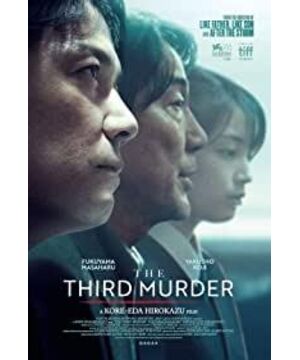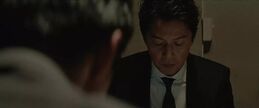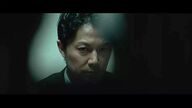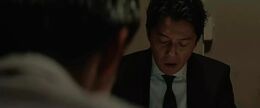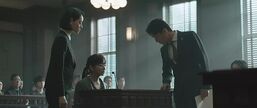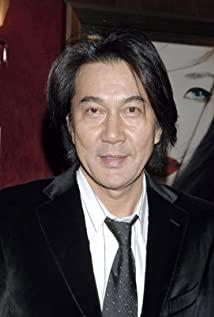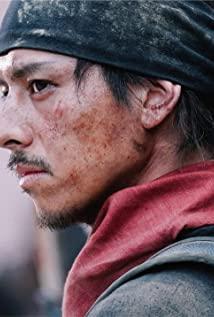To understand that it is Hirokazu Ee's new film "The Third Murder", we must first look at the relationship between the two leading actors Koji and Masaharu Fukuyama. In reality, they are all from Nagasaki, but in the film they are all from Hokkaido. This real friendship between the two of them is one of the bridges for them to understand each other.
Yakusho is 61 years old and Fukuyama is 48 years old. They are the ages of an older brother and younger brother. There is a space for reversal. 30 years ago, the father of lawyer Shigemori (Fukuyama Masaharu) helped Misumi (Yakusho Hiroshi) reduce his sentence. , This friendship has become a connection between Shigesheng and Misumi. The setting of such a background relationship became the basic foreshadowing of their 7-time secret room conversation.
Speaking of it, Shizhi has never intended to tell a story how amazing, he just finds a relatively representative time and occasion to explore the state of people and the relationship between people. I believe viewers who have carefully watched his previous work will find that they remember each and every character after watching it. Their actions and details only help us to reconstruct the tangible performance of this character. Therefore, this film is not a reasoning film at all, and it is futile to compare it with other reasoning masterpieces. For Shige, the subject that he has always cared about the most is under each subject: the bondage between family and relatives. This fetter is the key to determining how a person is shaped in the growth process.
Just like the father of Zhongsheng in the film, although there is only one scene, his words and deeds show very well that the character of Zhongsheng, who is a fool, is learned from him. Masaharu Fukuyama is also a joking and playful person who is usually on the show, so between his gestures, the kind of seriousness with a little disregard is in place. Especially in the office, he and his colleagues often ate snacks and talked about their own little preferences, and only treated the lawyer's affairs as work, and did not take the truth and consequences of the case seriously. His views on the profession of a lawyer are the same as Kensuke Gumei (played by Masato Sakai) in "The Winner Is Justice", except that his personality is not so exaggerated.
If you have a father, you have a daughter. What I'm talking about here is not a silly character, but loneliness and helplessness. Misumi's father neglected to get along with him because of his work as a lawyer, and Misumi also neglected to get along with his daughter because of his work as a lawyer (there was only one scene), and he was divorced. In this way, being a lawyer didn't seem to help him realize any value, but it even separated his wife and daughter. This situation was compared with the exquisite outfits of him and his colleagues, which made him look like a "successful" life loser-essentially similar to the male protagonist in Shizhi's previous works.
In the process of defending difficult criminal cases, he got the strange fun of using the law as a game to win. This indirectly points out that the law, like a father, gradually educates the lawyers under its system, so that they can only see the verbal struggle in the court, but not the social humanity outside the court. Among other various rules, erasing human nature is the biggest feature.
This led to the two real main lines of the film: the relationship between rules and implementers, and the relationship between generations. The film is titled "The Third Homicide", which is actually three different confessions of the same homicide. For the third time, the truth is almost approached, when the victim's daughter Sakie (Suzuki Hirose) was often sexually assaulted by her father, and Misumi and her killed the father together. Since then, there was actually a fourth "no murder", Misumi withdrew the confession again, seemingly to protect Sakie and prevent her from appearing in court to tell the embarrassing thing. But I very much doubt that these four confessions are part of the truth mixed with lies. The fable of "blind man touching the elephant" is also mentioned in the film, which directly spurs people like Zhongsheng.
In the process of approaching the truth, the two main lines of relationship are the two keys to decryption. Every time the clues from Shigesheng's investigation, Misumi gave another explanation. According to the rules he believes in, he respects the client’s motives every time, and thus seeks defense countermeasures within the rules of the law. It seems that he is a rigid ruler, and there is no such person as "Zhongsheng".
Until the penultimate time, Misumi asked him if he believed in himself instead of disrespect, and Shige Sheng trembled. Exploring along the way, the rigid thing on his body melted like the snow in Hokkaido. Regardless of whether Misumi killed anyone this time, I want to say that he is a good person. Because thirty years ago, he killed people out of poverty, and he inhumanly succumbed to the rules of society. He was grateful to Shigemori's father for commutation of his sentence, so that he could meet Sakie after he was released from prison, and made up for his lack of responsibility as a father from her. Only when he understands it will he have enough power to gradually reverse his thoughts.
This key leads to the second key. It is true that some of the clues that Shigesheng found are important, but the most important thing that can open the door behind this case is the relationship between generations. At the moment when he woke up and couldn't bear to cry, we should also re-examine the whole story.
Is it "some people are born to be damned"? Shigemori, Misumi, and Saki all think so, but their reasons are different. At the same time, there is another person who thinks the same way, that is, Misumi's daughter who has not really shown her face, and finally gave him a sentence "I hope my father will die soon." The daughters of the three of them hated their father to varying degrees. Perhaps Sakie's father was also extremely bad for his family, so Sakie finally couldn't help but kill him, leaving a cross mark. This murder requires a legitimate reason. The sexual assault may be fabricated or it may be true.
Misumi, who had been imprisoned for 30 years and was released from prison, found the happiness of a father and daughter in Sakie. This happiness is in sharp contrast to the unhappiness between her and the murdered father. At the same time, when Shigemori was investigating the case in Hokkaido, he imagined Shigemori's happiness in snowball fights with his daughter in his dream, and he also joined in, which formed a strong contrast with the unhappiness between him and his daughter.
The three pairs of father-daughter relationships between Shigemori, Misumi, and the victim, amidst the unfolding of the case, make Shigemori begin to pay attention to the essence of law and sin, love and hate, from a state of arrogance. More importantly, he realized that he should not only follow legal and ethical rules, and should not only appear as a parent when his daughter had an accident. Although they are called father and daughter, the relationship between the two should be more like a pair of close friends, like the one between Shigemori and Misumi in the end.
Finally, after thinking about it carefully, after the two protagonists' eloquence and seemingly speaking a lot, the victim's wife and daughter are the only complete combination of wives and daughters in these three families, and that few words contain the most important thing. The invisible things. (Please pay attention to their scenes when watching) Of course, to see the invisible things, the premise is that there is that endless content for comparison. At the end of the film, Shigemori faces the sun, just like Misumi and Sakie wiped off the blood on their faces, they also wiped his own face. This was the only time he touched himself in the whole film.
View more about The Third Murder reviews


